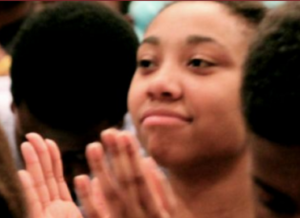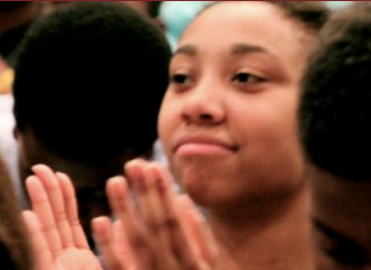 Most of the news you’ve heard about charter schools and discipline has been bad. Very bad. But one school in New Orleans is moving in a different direction with a focus on restorative justice. I spoke with Beth Hawkins about it for this column in U.S. News and World Report, published on Friday.
Most of the news you’ve heard about charter schools and discipline has been bad. Very bad. But one school in New Orleans is moving in a different direction with a focus on restorative justice. I spoke with Beth Hawkins about it for this column in U.S. News and World Report, published on Friday.
Restorative justice practices – approaches to conflict and misbehavior that focus on relationships rather than punishment – are taking hold across the country, but schools continue to struggle with implementation. The phrase “restorative justice” itself is losing meaning: it’s becoming easy to forget that the “restore” part refers to a conflict among people and the need to repair a social harm inflicted on a relationship or community. It’s interactive and dynamic and it depends on the investment of everyone involved.
In a true restorative justice education space, what looks like a behavior problem has a culture solution. It is unequivocally not about following a new protocol, having students fill out different forms, or renaming the detention room. It requires changing the way that every person in the building relates to one another – students and adults. And doing it in schools means doing it in spaces that host some of our most complex social dynamics: racism, sexism, classism, historical segregation, gentrification, and more.
To be very explicit about it: school discipline is a racial justice issue, and restorative justice is civil rights work. It is deeply personal, often uncomfortable, and implicates both history and power. And if you are the one with history and power on your side, these are all things that are never easy. They shouldn’t be. If it were easy, it would mean you weren’t fully engaged in the authentic self-inquiry necessary to move the work forward.
“Uncomfortable” is an intersection, not a stop sign. You’re right to think that hot feeling under your ribs is your cue that something is wrong, but what you do with that next is where the work begins. We need to prepare our practitioners to be uncomfortable, to retrain them to see that as a sign that they’re doing something right, and then give them the skills to respond to their own discomfort with empathy, kindness, and humility.
April 12, 2016
How One NOLA Charter School Is Shifting the Dialogue on Discipline
By Bellwether

Share this article
More from this topic
Meeting the Moment: How 4 Philanthropic Foundations Are Stepping Up Right Now
Teaching Interrupted: How Federal Cuts Threaten a Promising Teacher Residency Program
Does Increasing Graduation Requirements Improve Student Outcomes?
No results found.